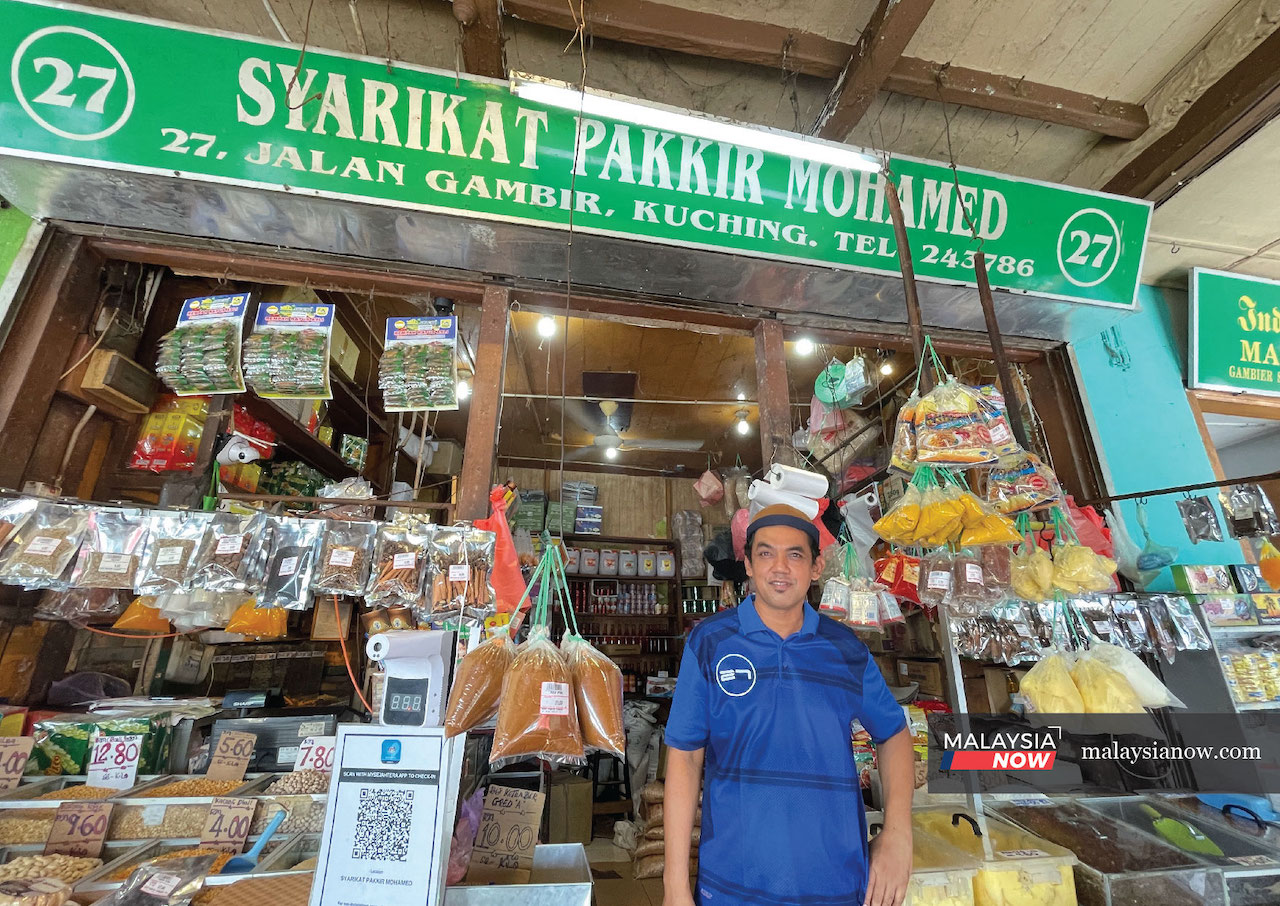No white flag for Sarawak spice traders
Having survived for generations, they are determined to make it through this year as well.
Just In
Along one of the oldest streets in Kuching, Sarawak, stands a line of shops that have been there for decades.
Year in and year out, they had seen a steady stream of customers entering to purchase their merchandise: spices and herbs, used primarily in cooking the local cuisine for which the state is known.
But this past year has been markedly different, as the Covid-19 pandemic continues to trace a path of destruction on businesses across the country.
The damage has been especially bad in Sarawak, which for days has been recording some of the highest case numbers in Malaysia. And with the ban on interstate travel still firmly in place throughout most of the country, these old shops in Jalan Gambir are struggling to stay open.
Traders in the area told MalaysiaNow there had been a slight recovery in business since the movement control order (MCO) was replaced by the conditional version in early March. But what small gains they have made may be erased by the ban on Ramadan bazaars in the state as the markets, a daily affair during the fasting month, would normally see a boost in number of customers.

Spice trader Mohamad Iskandar Abdul Kader said the area would usually be packed with people especially during the school holidays.
Iskandar’s business, Yacob Sahib Trading, was started by his grandparents who migrated to Malaysia from India and settled down in Kuching about 88 years ago.
It has survived for generations, but now the fallout from the Covid-19 pandemic is threatening to send it under.
“We suffered a drop in income of about 80% during the first MCO implemented in March last year,” Iskandar told MalaysiaNow.
And while they are still open for business today, customers are few and far in between.
Sarawak has been battling a surge in infections, hitting a high of 960 new cases out of 2,551 reported across the country on April 16.
Health Minister Dr Adham Baba recently said some 500 ministry staff would be mobilised to help contain the spread of infection in Sarawak, including doctors, nurses, medical assistants, laboratory officers and radiologists from other states as well as from green zones in Sarawak itself.
Meanwhile, local councils in areas such as Kuching, Miri, Sibu, Bintulu and Sri Aman said Ramadan bazaars would not be held despite the green light from the federal government.

Abdul Kalam Mohamad is grateful that his business, Syarikat Pakkir Mohamed, has survived the pandemic so far.
But the company, started by his grandfather in 1950, is on the verge of bankruptcy, he told MalaysiaNow.
When the MCO was first enforced, business dropped by 90%. Now, it has recovered somewhat but uncertainty still lies ahead.
“It was a horror to see how the pandemic could have such a crippling effect on the economy, and on my business,” Kalam said.
“During that time, the number of customers declined drastically but I could not do anything about it.”
Both he and Iskandar also have their workers to think of.
“I tried my very best not to downsize,” Iskandar said.
For Kalam, there is also the issue of sentiment. “I didn’t have the heart to fire my workers because they have been with me for so long.”
For now, business is still unsure and there is no telling how many customers they will get from one day to the next.
But one thing is for certain: having survived for so many generations, they are determined to keep going until the very end.
Subscribe to our newsletter
To be updated with all the latest news and analyses daily.
Most Read
No articles found.



